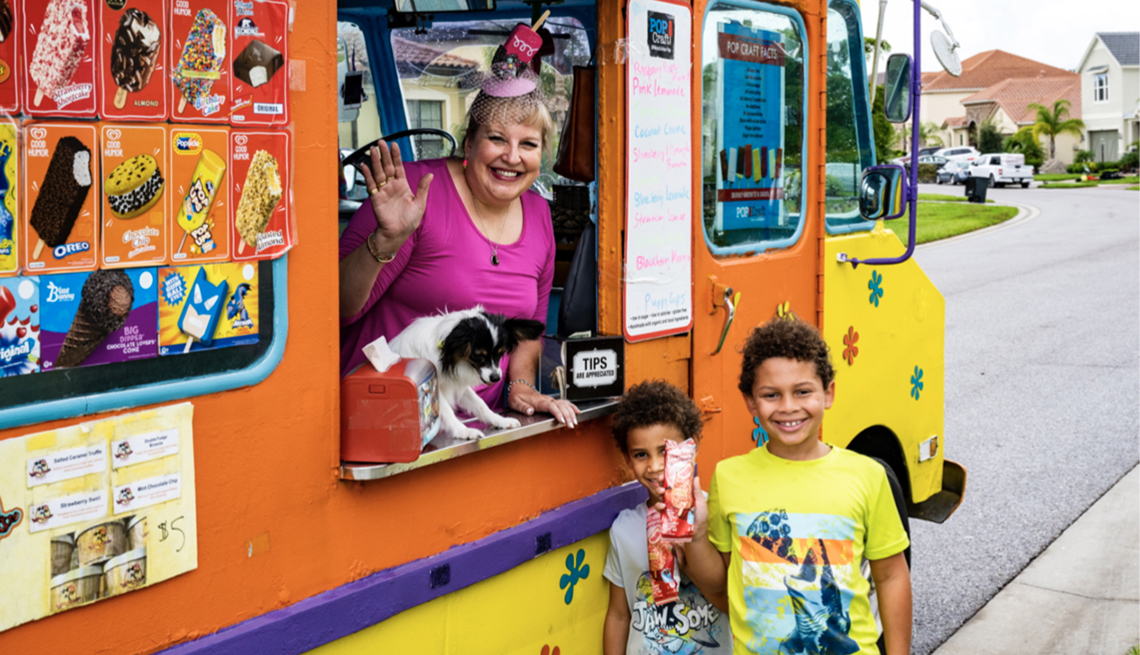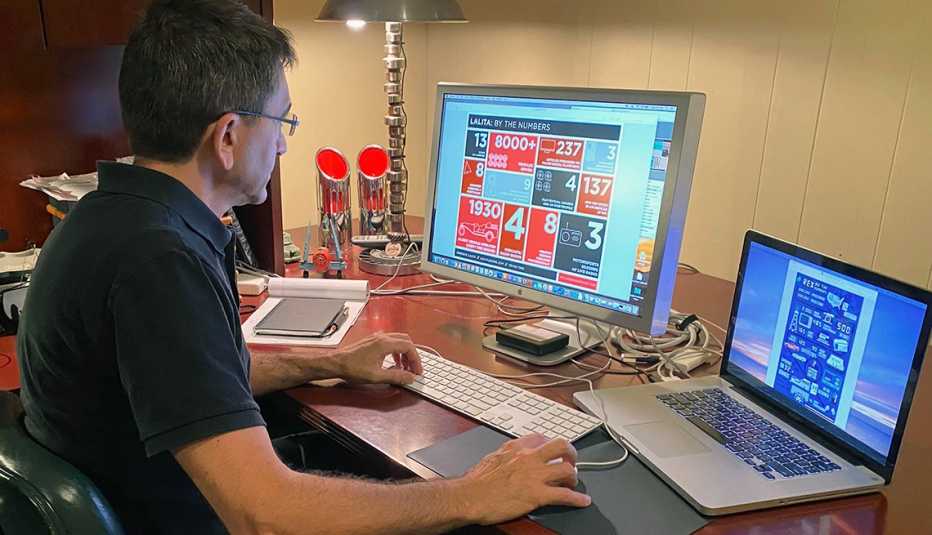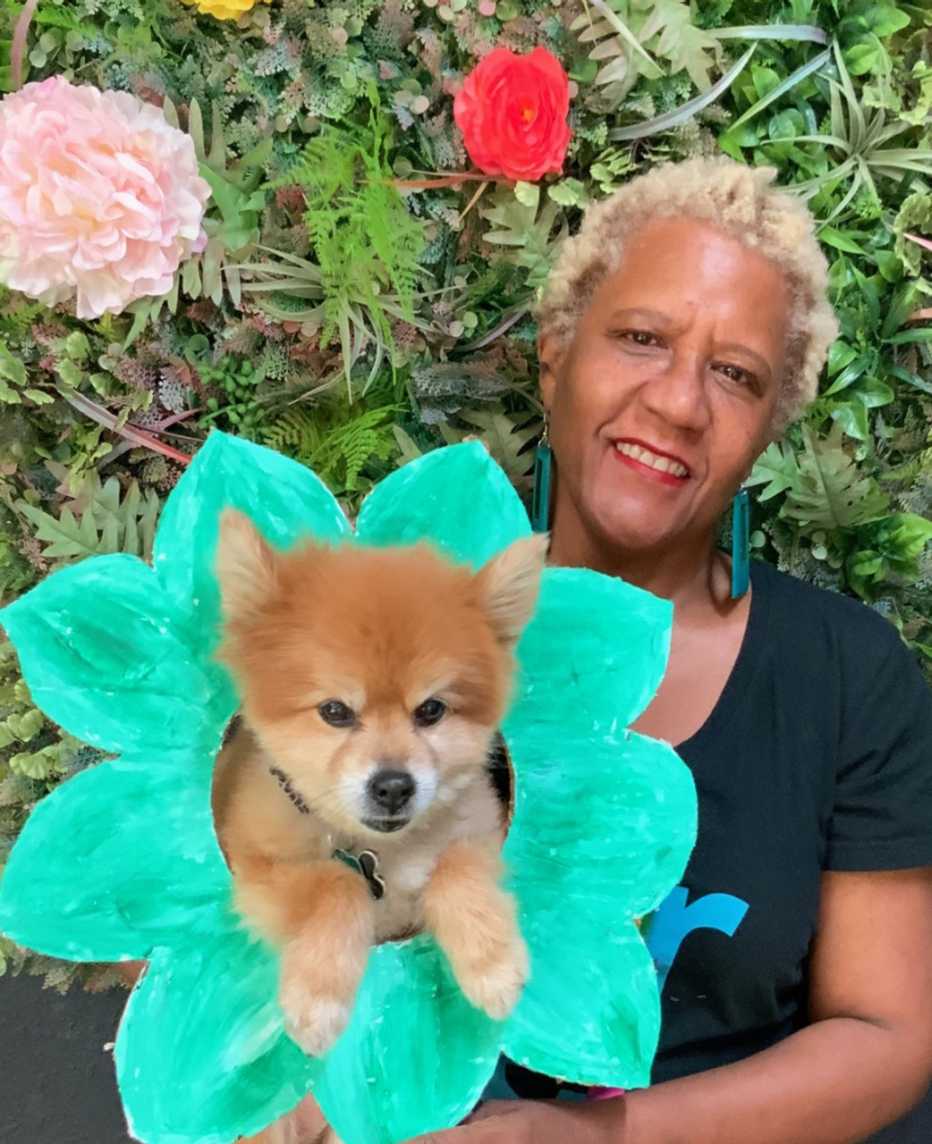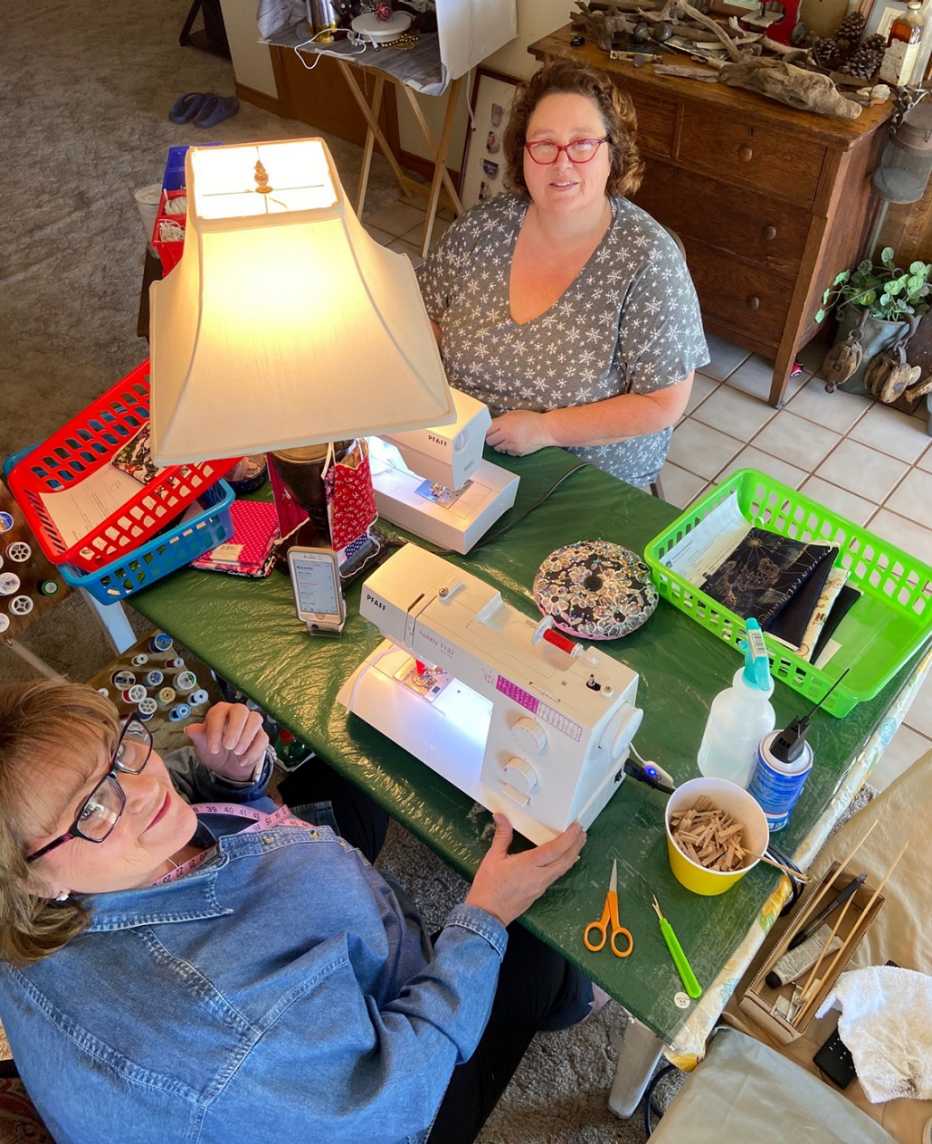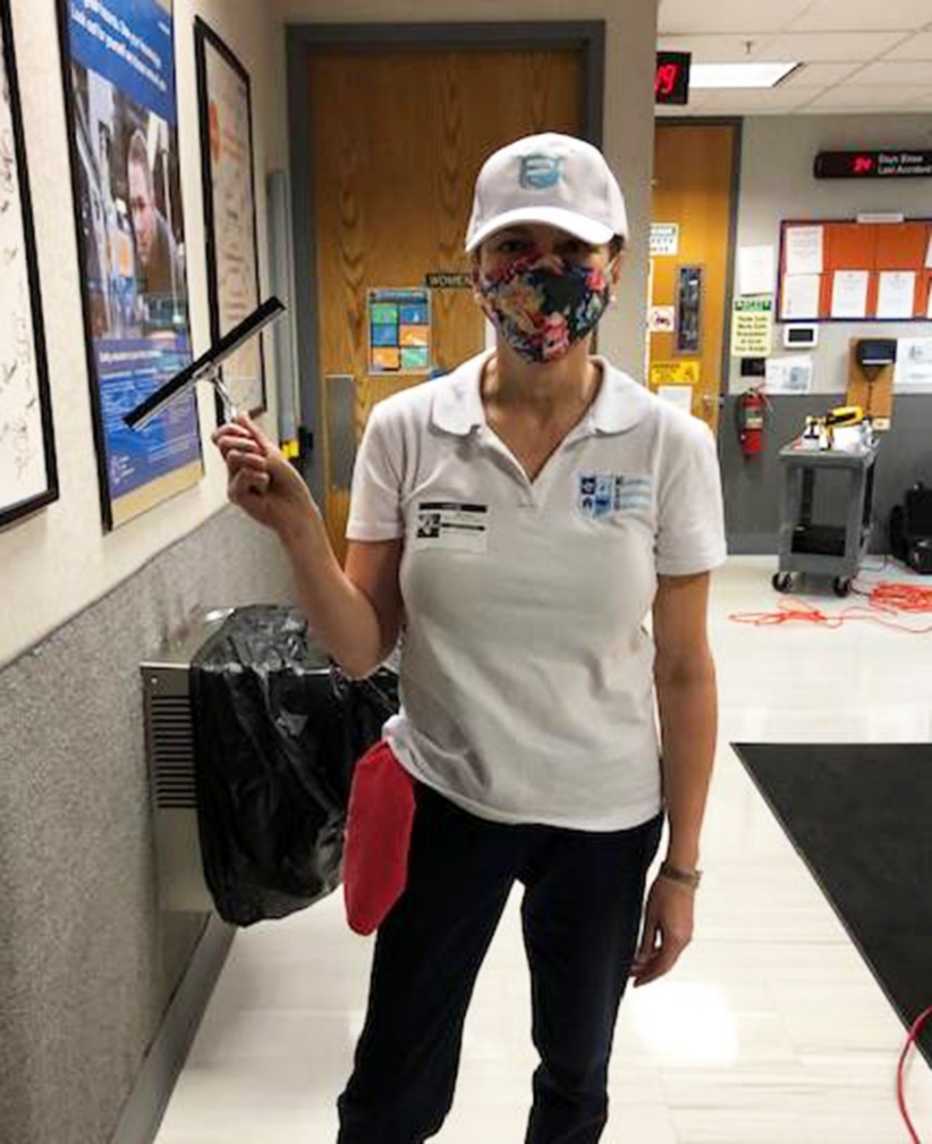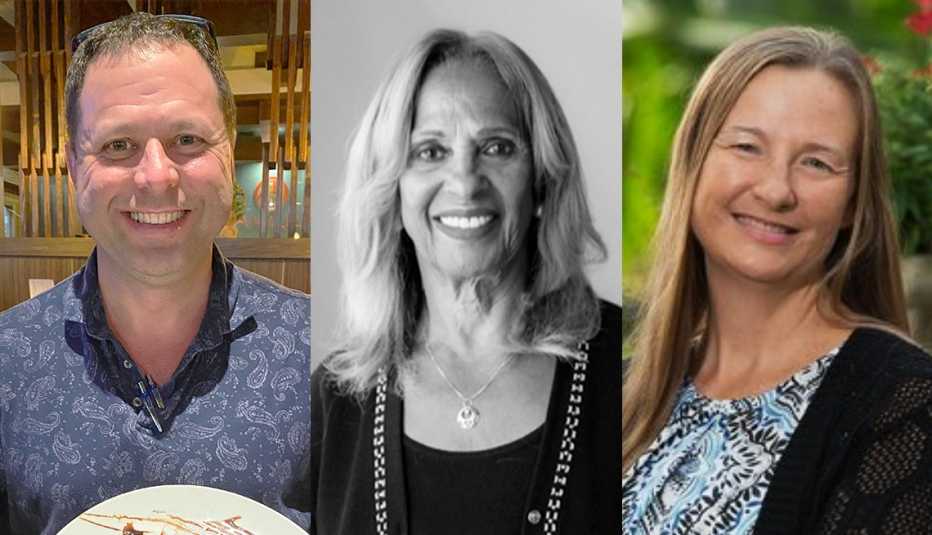We offer 50 photos in a 45-minute session for $250, and we're doing very well. We're also offering do-it-yourself classes on Facebook Live — how to make a flower crown for your dog, for example — from our studio. It's all an adventure. The best part is that I've been able to keep all my employees and contractors. I'm happy we're finding new ways to stay in business.
From high school theater to Etsy masks
Two Sisters Sew Designs
Becky Smith, 56, with Debbie Cobb, 61, Diana, Texas
When the high school where I taught theater went to remote learning last spring, I tried to be creative. But distance theater? Not my thing. I was eligible for retirement, so I took it in June. Here in rural Texas, there was no place to buy masks, so my sister Debbie — who is 61 and also retired — and I got out our sewing machines. At first we were donating masks to older people. We'd set up in the Walmart parking lot. After giving away about 2,000, though, we realized we were good at making masks and opened on Etsy.
It's been hectic but fun. We both live near our parents’ small cattle farm. Last year we would go over to have coffee with them at the start of the day. Our mother died of COVID-19 in December; now we visit every morning for coffee with our father. Then we do our sewing, with the dogs snoozing at our feet. We manage our time better; back in July, we were sewing 12 to 14 hours a day and even had our third sister sewing with us. Today it's much more manageable — about seven hours a day. We've got customers as far away as Istanbul. Someday the mask demand will slow, but we don't think it will go away entirely for a long time. We're branching out. We now make anxiety vests for dogs, lanyards, and skullcaps for bikers. And it's been a lovely way to supplement my retirement income.
From chemistry to killing microbes
Microbial Solutions Unlimited
Elaine Brauch, 58, Chesterfield, Missouri
We knew a lot about cleaning chemicals before COVID-19. Mike had cofounded a janitorial company back in 1984, and when the pandemic hit, the demand for disinfectants was frenzied. And I had worked for years as a chemist and then in Environmental Protection Agency (EPA) compliance for a large water company. But we both worried about disinfectants. They're poison, which is why they have to be used so carefully. They damage surfaces. So instead of watching cable news and stressing out about the virus, which is what I was doing, Mike and I started looking for alternatives to disinfectants. We found out about a virus killer that uses an electrical charge to destroy microbes. Although it's EPA approved, I'm a scientist, so I was skeptical. We tested and retested, working closely with a pulmonologist and other scientific experts. Once we were convinced of our treatment's effectiveness in killing viruses, we launched the company in May. It's been a whirlwind. We're looking to build our business with residential, church, school, hospital and office buildings. And we have licensed our treatment to people interested in using this approach in Tulsa, Oklahoma, and are looking to expand across the country. I'm the CEO, and I have always wanted to build a woman-owned company. A close friend and former colleague is the COO. And Mike is the CFO. We think the potential for this kind of cleaning will last beyond COVID-19: People are already talking about influenza concerns. And we're builders by nature.




























































